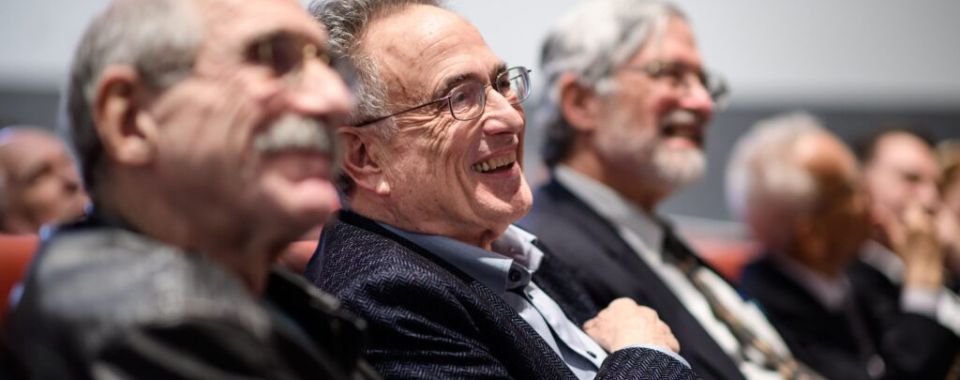
Tom Garlinghouse, High Meadows Institute
November 28, 2023
Robert Socolow, emeritus professor of mechanical and aerospace engineering and the High Meadows Environmental Institute, has been awarded the prestigious John Scott Award for his decades-long contributions to reducing human impacts on the climate.
The John Scott Award, the oldest science prize in America, is given annually to “the most deserving men and women” whose inventions have contributed in some outstanding way to the “comfort, welfare, and happiness” of humankind. The award is administered by the Board of Directors of City Trusts of Philadelphia. Socolow was gifted the award in conjunction with Michael Mann, a nationally recognized climate scientist at the University of Pennsylvania. Both men received their awards at a ceremony on November 30 at the American Philosophical Society in Philadelphia.
“I’m really thrilled to receive this,” said Socolow. “It’s great the awards committee is recognizing climate science and feels wonderful to have my career appreciated.”
Socolow has spent most of his professional life focused on the global energy system and how it affects the climate. He is renowned for blazing a pioneering trail in the study of how the energy system can be more benign, especially how human-produced carbon dioxide emissions to the Earth’s atmosphere can be reduced. For the last 50 years, he has been a major voice in American environmentalism and a fierce advocate for seeking solutions to the ongoing climate crisis.
Socolow’s path toward becoming one of the world’s leading experts on the climate problem followed a somewhat circuitous route. Socolow received his doctorate in physics from Harvard in 1964 and began his teaching career at Yale University, where he researched quarks, which are the fundamental “building blocks” of all matter in the universe. He soon became interested in—and concerned about—human impacts to the planet and, in 1971 along with ecologist John Harte, he published “Patient Earth.” This book focused on the environmental challenges of the time, including wilderness conservation, resource management, population control, and ecological destruction.
When he came to Princeton in 1971, Socolow was tasked with creating an interdisciplinary research program geared toward environmental research, a program that was then known as the University’s Center for Environmental Studies. One of the first things he did was put together a team of researchers—engineers, statisticians, ecologists, psychologists, and architects—to examine residential energy use, one of the first studies of its kind. Decades later, he was a founding member of Princeton’s Environmental Institute, now known as the High Meadows Environmental Institute, and then was pivotal, along with Stephen Pacala, the Frederick D. Petrie Professor in Ecology and Evolutionary Biology, in establishing Princeton’s Carbon Mitigation Initiative. These organizations and his many research interests have focused on solutions to climate change, including energy efficiency, nuclear power, wind and solar power, carbon sequestration, and low-carbon energy from fossil fuels.
Socolow is perhaps best known for publishing, along with Pacala, the landmark paper “Stabilization Wedges: Solving the climate problem for the next 50 years with current technologies.” The paper was published in the journal Science in 2004 and provides a framework for understanding both the carbon emission cuts needed to avoid dramatic climate change and the technologies available to do so. It is considered seminal in the study of climate change mitigation and remains highly influential today.
Socolow is a member of the American Academy of Arts and Sciences, the National Research Council of the National Academies, the American Physical Society, and the American Association for the Advancement of Science. He is also the recipient of numerous awards and honors, including the 2005 Axelson Johnson Commemorative Lecture award and the 2009 Frank Kreith Energy Award. He received the 2003 Leo Szilard Lectureship Award for “Leadership in establishing energy and environmental problems as legitimate research fields for physicists, and for demonstrating that these broadly defined problems can be addressed with the highest scientific standards.”
Several scientists who are world-renowned have received the John Scott Award, including Marie Curie, Orville Wright, Thomas Edison, Nikola Tesla, and Jonas Salk. The most recent prior Princeton recipient was Emily Carter, the Gerhard R. Andlinger ‘52 Professor in Energy and the Environment, who received the award in 2019 for her contributions to sustainable energy technologies.
This story originally appeared on the High Meadows Environmental Institute website.